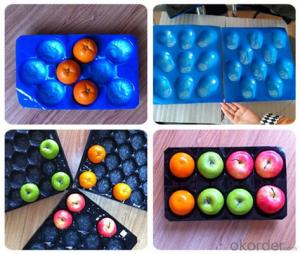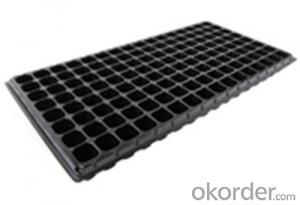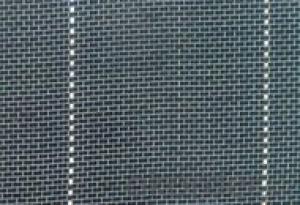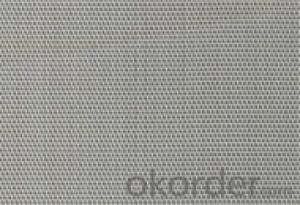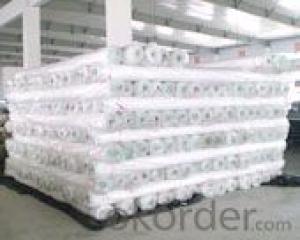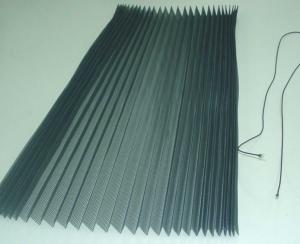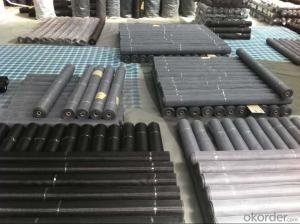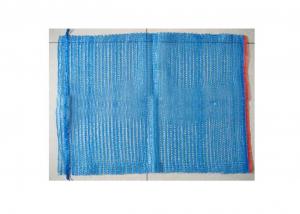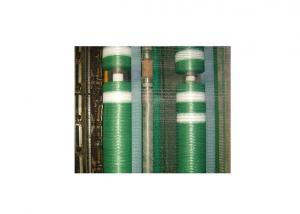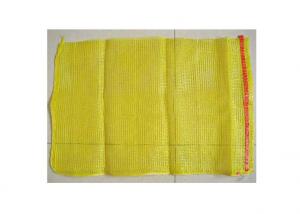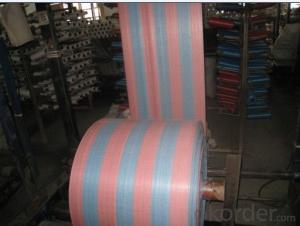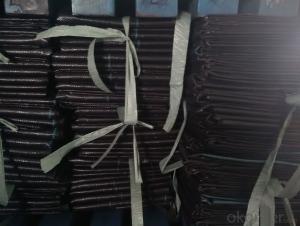Anti Insect Net different mesh 20x10mesh
- Loading Port:
- China Main Port
- Payment Terms:
- TT OR LC
- Min Order Qty:
- -
- Supply Capability:
- -
OKorder Service Pledge
OKorder Financial Service
You Might Also Like
Introduction of Anti insect net:
It isweaved by High-density polyethylene (HDPE) UV stabilized mono filament, and iswidely used in greenhouse construction.
Specifications:
Material base fabric | Fabric Weight | Uv. Content | Temperature range |
HDPE | 80gsm up to 200gsm Standard Weight: 80gsm, 110gsm, 125gsm | 0.3% or 0.5% | -40 ~ +80oC |
Width: 1m, 1.5m,2m (can be joined to 10m)
Length: 20m, 50m,100m
Color: Black, Green, DarkGreen
Minimum life length: 4 years, under normalweather conditions and use.
Applications:
- Being aneffective protection against insects like white fly, etc.
- Helpingreduce the use of phytosanitary products against insects/plagues.
- Allowingmaximum ventilation in hot seasons.
Packing: rolls on cardboard tubes & wrapped in plastic.
- Q: Are there ground cover options that attract butterflies or pollinators?
- Yes, there are several ground cover options that attract butterflies or pollinators. Some examples include creeping thyme, creeping phlox, sweet alyssum, and clover. These plants provide nectar and shelter for butterflies and other pollinators, making them a great choice for creating a pollinator-friendly garden.
- Q: How do you choose ground cover for a slope with poor soil?
- When choosing ground cover for a slope with poor soil, it is important to consider plants that have the ability to tolerate and improve the soil conditions. Opting for erosion control plants like grasses, wildflowers, or shrubs with deep root systems can help stabilize the slope while also enhancing the soil quality. Additionally, selecting species that are drought-tolerant and can withstand the environmental challenges of the slope will ensure successful growth and coverage.
- Q: hi everyone.i want to do a project on biodegradable plastic concentrating strictly on the materials which constitute it.can anyone direct me or give me some useful links with information about the same
- problematic aspect. research over a search engine. it may help!
- Q: How does ground cover affect the growth of nearby ground orchids?
- Ground cover can have a significant impact on the growth of nearby ground orchids. Depending on the type of ground cover, it can either enhance or hinder the growth of these orchids. Thick and dense ground covers, such as grass or invasive weeds, can compete for resources like sunlight, water, and nutrients, leading to stunted growth or even death of nearby ground orchids. On the other hand, low-growing and non-competitive ground covers, like moss or certain types of ferns, can provide a beneficial microclimate by retaining moisture and providing shade, promoting the growth and development of ground orchids. Therefore, choosing the right ground cover is crucial to ensure optimal conditions for the growth of nearby ground orchids.
- Q: Can agricultural plastic products be used for hydroponic nutrient delivery?
- Yes, agricultural plastic products can be used for hydroponic nutrient delivery. These plastic products, such as tubing, containers, and trays, are commonly used to create a system that delivers nutrient-rich water directly to the plant roots in a hydroponic setup. The plastic materials used in agriculture are durable, resistant to water and chemicals, and can be easily customized to suit the specific needs of hydroponic nutrient delivery systems.
- Q: What are some ground cover plants that attract beneficial insects?
- Some ground cover plants that attract beneficial insects include sweet alyssum, creeping thyme, yarrow, and clover. These plants not only provide shelter and food for beneficial insects but also help in pollination and pest control in the garden.
- Q: How are plastic seedling trays sterilized for disease control?
- Plastic seedling trays are commonly sterilized for disease control through various methods, such as heat treatment, chemical sterilization, and ultraviolet (UV) light exposure. Heat treatment involves subjecting the trays to high temperatures, typically through steam or boiling water, to kill any pathogens or disease-causing organisms present. Chemical sterilization involves using disinfectants or sterilizing agents to eliminate potential pathogens on the trays. Lastly, UV light exposure can be used to disinfect the trays by killing bacteria, fungi, and other microorganisms. These sterilization methods help ensure disease-free seedlings and promote healthy plant growth.
- Q: Can agricultural plastic products be used for plant labeling?
- Yes, agricultural plastic products can be used for plant labeling. These products are often durable, weather-resistant, and can withstand outdoor conditions. They can be easily attached to plants or plant containers, providing an effective and long-lasting way to label and identify different plant species.
- Q: What are the best ground cover plants for slopes?
- Some of the best ground cover plants for slopes include creeping juniper, creeping phlox, vinca minor, and sedum. These plants have low spreading habits and can help prevent erosion while adding visual appeal to the slope.
- Q: How do nursery trays promote uniform growth of plants?
- Nursery trays promote uniform growth of plants by providing a controlled environment that ensures consistent conditions such as temperature, moisture, and light. The trays allow for proper spacing and sufficient root development, preventing overcrowding and competition among plants. This encourages even distribution of resources and reduces the likelihood of stunted growth. Additionally, the trays offer protection from external factors like pests and weeds, further supporting uniform growth.
Send your message to us
Anti Insect Net different mesh 20x10mesh
- Loading Port:
- China Main Port
- Payment Terms:
- TT OR LC
- Min Order Qty:
- -
- Supply Capability:
- -
OKorder Service Pledge
OKorder Financial Service
Similar products
Hot products
Hot Searches
Related keywords







